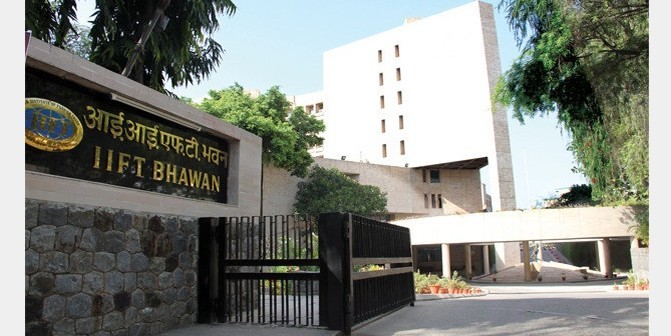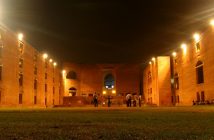Indian Institute of Foreign Trade (IIFT) will conduct the entrance test for admission to MBA (IB) 2017-19 batch for its Delhi and Kolkata campuses on November 27, 2016 in 20 cities across India.
The pencil and paper based objective type test in English will be of 2 hours duration from 10.00 A.M. to 12.00 Noon.
The exam will have four sections with a total 200 questions. The sections are: (i) English Comprehension (ii) General Knowledge & Awareness (iii) Logical Reasoning, (iv) Quantitative Analysis. Unlike most of the computer based tests, candidates are allowed to switch between sections during the allotted time.
Scoring Pattern
The scoring pattern in IIFT exam is different from the other MBA with a maximum score of 100 marks awarded to more than 125 questions. The maximum marks allotted to different questions vary from 0.5 to 1. Sectional cut offs also play an important role.
A penalty of one third marks will be awarded for every wrong answer. You have to be careful in avoiding negative marking by choosing the right answer options.
This difference in sectional weightage needs to be taken into account. Answering more questions in low weightage sections would not result in scoring more marks.
Even while trying to get past the minimum qualifying score in each of the 4 sections, it is also necessary for you to get an overall high score by attempting more questions from the high weightage sections.
Speed & Accuracy
Since the time per question in IIFT test is shorter than that in other management entrance exams, it is necessary to develop a good speed and stick to the time frame.
For increasing speed and time management, you should attempt as many mock tests as possible. Take the previous years’ test papers and complete the mock test within the allotted time.
You need to start preparing for the test at least 2-3 months in advance. Let us now examine how to deal with the four sections.
English Comprehension tests your language skills. Read newspapers and magazines. Write down a summary of all the articles you read on a daily basis. It will help you identify the main idea and structure of the article. A feedback from fellow students would help in cutting out all unnecessary information.
General Knowledge & Awareness can be tackled by getting hold of the latest Yearbook. Current affairs are important. So, you should cultivate a habit of reading newspapers comprehensively, including the editorials. Yearbooks will provide static general knowledge.
Logical Reasoning: Here again, newspaper reading helps with analysis and interpretation besides improving your reading speed,
Quantitative Analysis: Questions are mainly from topics such as mensuration, probability, linear algebra, statistics and trigonometry. Regular practice is needed to increase speed and accuracy.





